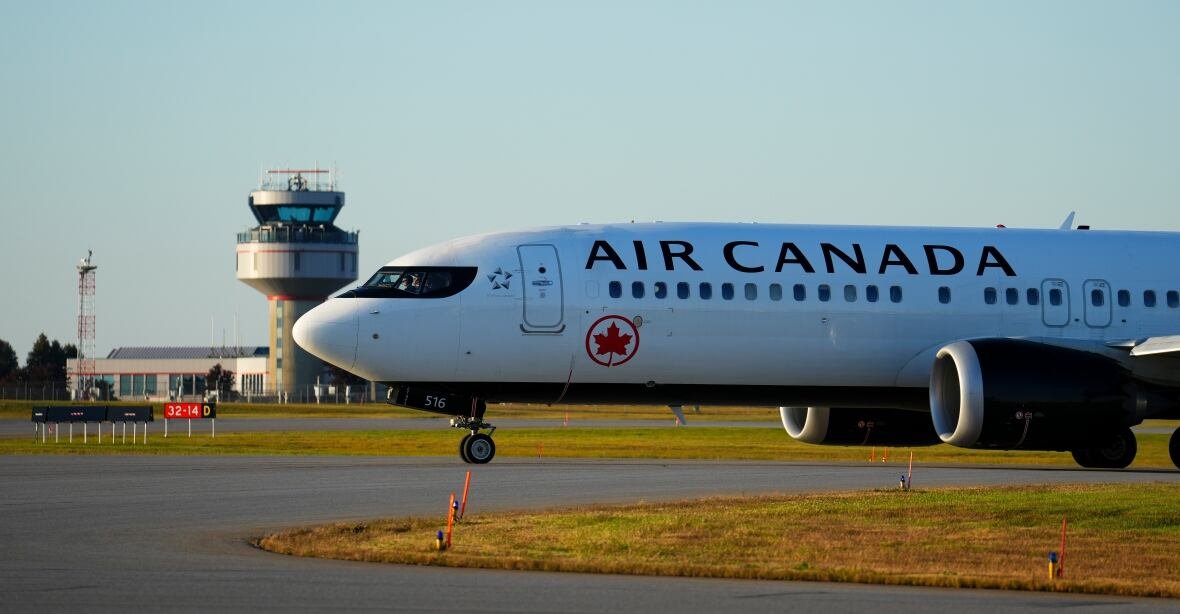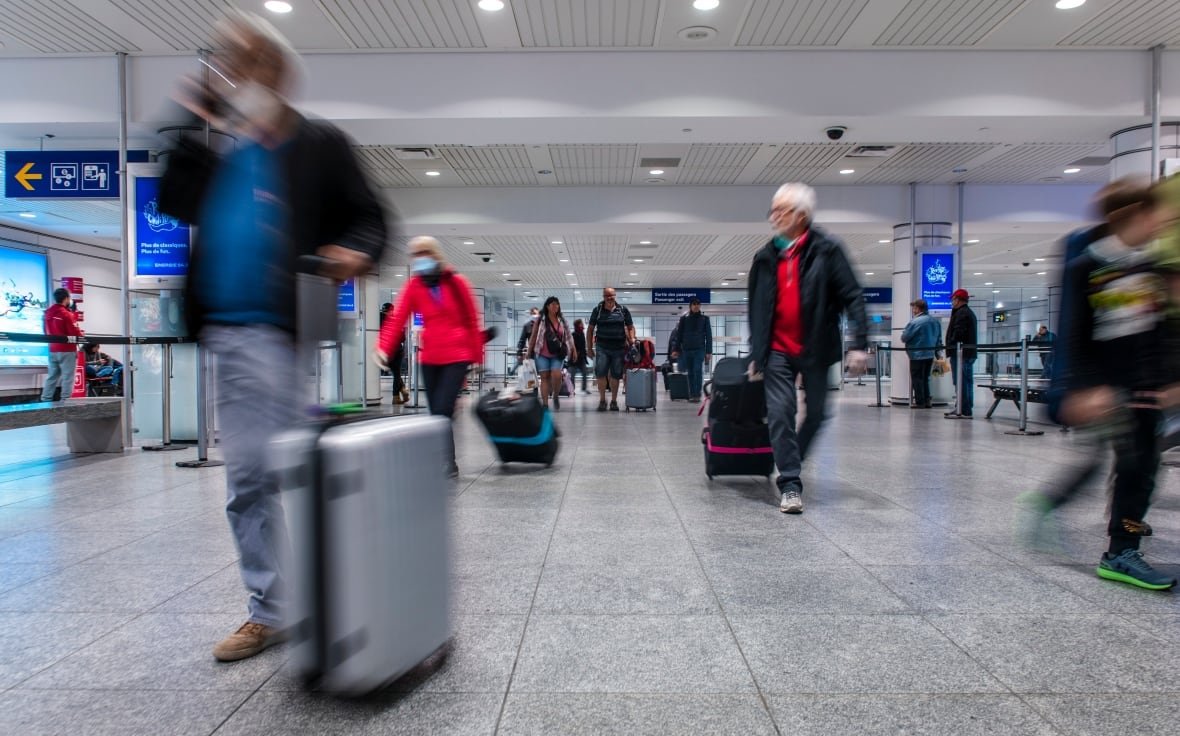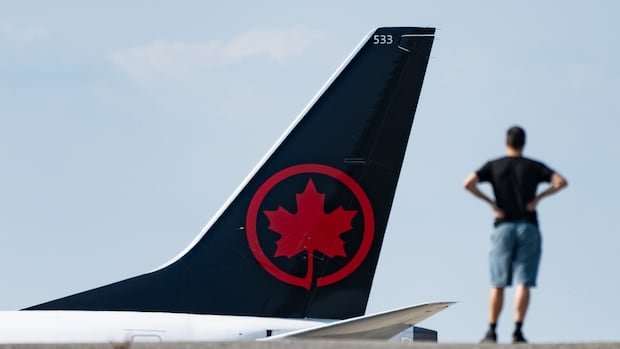A small claims court has ordered Air Canada to pay a couple $10,000, after an overbooked flight resulted in the two being sent to multiple Canadian airports under the promise of a replacement flight that never materialized, ruining a vacation that had been planned for years.
A blistering decision from the Small Claims Court of Yukon concluded that the couple were “treated shamefully” by the airline. Justice Katherine L. McLeod wrote that Air Canada had breached the Air Passenger Protection Regulations (APPR) multiple times and put the couple through a “horrendous experience.”
The APPR lays out the obligations that airlines have to their passengers in the event of issues such as flight cancellations, delays and damages to luggage.
The couple, who live in Yukon, had saved up for three years so they could take their first vacation without their kids. They arranged time off work and child care for their three children for the nine days that they were going to be at a resort in Cuba, a trip that was scheduled for February 2023.
According to the legal decision, when they arrived in Toronto for their Air Canada flight to Cuba, they found it had been overbooked.
Passengers were told that if they volunteered to give up their seats, they would be compensated and booked on an American Airlines flight leaving later that day, which could ultimately get them to Cuba.
Air Canada acknowledged that this situation falls under “denial of boarding,” the decision stated.

The plaintiffs decided to take the offer, but found out hours later that the flight was not available to them, without being told why.
This was the start of a three-day ordeal for the couple, laid out in the decision. They were diverted to Montreal under the impression that there would be a replacement flight for them there, only to be sent back to Toronto and then to Edmonton, with no pathway to Cuba provided by Air Canada.
Eventually, the couple purchased a ticket to Cancun, Mexico, to try and salvage a vacation in some form, requiring them to take more time off work, which meant lost income.
The judge found that the initial denial of boarding led “to enormous stress” and that Air Canada “failed completely” in its “duty to communicate.”
The APPR specifies that if a carrier offers a benefit to a passenger who volunteer to give up their seats on an overbooked flight, such as booking them on another flight, they must provide written confirmation to that passenger before the flight leaves.
The couple did not receive this.
At one point, the couple were told that Air Canada had arranged tickets for them on an Air Transat flight, but when they arrived at that airline’s information desk in Montreal, it had no knowledge of the alleged tickets.
“It appears that Air Canada did not even have evidence of a communication with Air Transat or American Airlines,” the decision states.
Air Canada had argued that the court did not have jurisdiction to award non-compensatory damages, that further delays were due to weather conditions out of its control, and that it had fulfilled its APPR requirements by giving the plaintiffs $2,400 each as compensation for the denial of boarding. The airline said that was its only financial obligation in the situation, according to the legal decision.

After the plaintiffs filed their legal action, Air Canada reimbursed them for some of their out-of-pocket costs, paying them roughly $1,800 in total for some hotel and food charges they incurred, the decision stated. However, the judge found that this didn’t cover all of their costs, such as the additional cost of booking a new flight to a new destination and their loss of income.
One of the plaintiffs, Tosh Southwick, celebrated the win on Wednesday in a post in a Facebook group for Air Passenger Rights, stating that the case has “helped to set a new precedence that hopefully others can use in their cases.”
Air travel in Canada
It can be a battle in Canada to receive compensation for air travel troubles. As of early November, the backlog of air passenger complaints was over 80,000, according to the Canadian Transportation Agency.
Canada’s transportation regulator proposed updated rules in 2023, including requiring airlines to compensate passengers for any flight disruption, unless they can prove “exceptional circumstances” caused it. However, the air passenger bill of rights still hasn’t been updated — and a spokesperson told CBC News last month that there is “no timeline” for a final draft of the proposed regulations.
The current regulations, which came into force in 2019, require airlines to compensate passengers for delays or cancellations that are within their control, such as overbooking, leaving room for airlines to deny compensation by claiming circumstances that caused a disruption were out of their control.
One of the focuses of the judge’s decision in this recent case was the failures of using automated booking systems, and leaving the customers waiting on the phone or in line for hours trying to get in contact with a human employee.
“While I appreciate the wonders of air travel has been advanced by computers, this case is an example of why computers cannot be the only decision maker,” Justice McLeod wrote.
“Had a human being looked at the available alternative travel for the defendants, provided the proper documentation, examined the feasibility of onward travel plans chosen by the corporation computers, much of this would have been avoided.”





